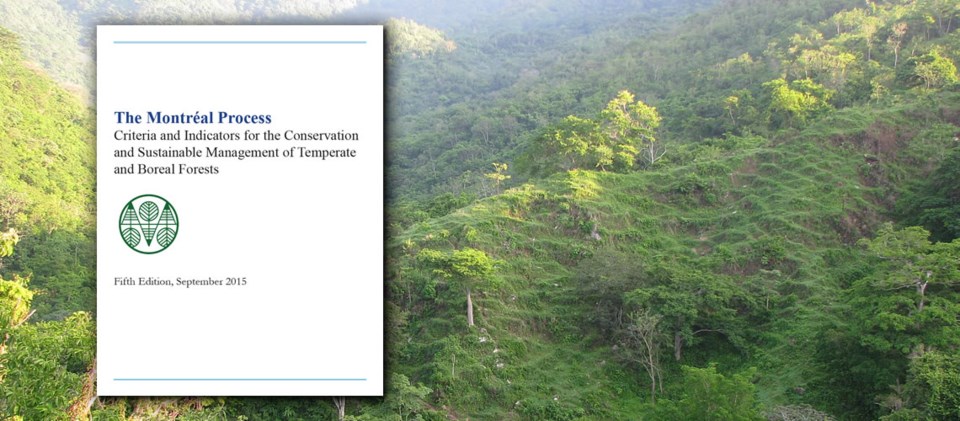Reconciling Aboriginal title on Crown forest land is essential to the long-term solution of recent Canadawide protests. The Supreme Court of Canada has defined Aboriginal title as a collective right of communities to control and sustain resources and values of the land for present and future generations.
Aboriginal title finds common ground with Crown forest land in British Columbia, because the provincial government acts as the trustee with the duty to ensure that their values are sustained for the benefit of communities. Reconciliation does not seem to present much of a problem until you deal with differing interpretations of what sustainable means.
Traditional Aboriginal use of forest land involved a spiritual appreciation of the land and a diverse basket of benefits that included wood, fuel, clothing, fish, wildlife, berries and medicine. It was a subsistence economy that derived multiple benefits from the forest.
Provincial government administrations have used public forests for an industrial forest economy based on timber. While other resources and values are supposed to be protected, they can be compromised by the desire for financial gain.
Fortunately, there is an independent science-based definition of forest sustainability in an international agreement known as the Montreal Process. Some forest should be protected in parks, rare species are conserved, soil and water resources and forest health are ensured by good practices. Wood-utilization industries should get as much value as possible out of the timber and the forest economy should also include non-timber forest products and nature based recreation and tourism.
The legal framework used by the province for forest management is a system of timber harvesting rights mainly held by forest corporations. The least-cost method of gaining the benefits of harvest and exercising the responsibility to replant is itinerant management of large patches of forest that are harvested and regenerated.
Forest-dependent communities are suffering, because the harvesting-rights system is failing to sustain timber supplies. It impedes value-added wood manufacture and nature-based economic activities. Administered timber prices make wood products exports vulnerable to punishing export tariffs. This is not a smart framework for a major industry.
History reminds us that harvesting rights, used by the Romans, degraded colonized land around the Mediterranean.
Large-grained harvesting impacts on forest landscapes have fuelled protests from environmental groups for decades. The B.C. government tried to resolve protests by designating more forests as parks or protected areas to be maintained in natural condition. The B.C. Auditor General has reported that ecological integrity is not being maintained in parks, meaning that our forested parks are only protected on paper.
Although British Columbia has three times the area of Switzerland in officially designated parks, there is an even larger area of land that is likely to remain in natural condition. This includes inaccessible forest, alpine and mountain top areas that are in landscapes that also supply timber.
Sustainable trails and other recreational development in these areas can develop a nature-based tourism economy for forest dependent and aboriginal communities. Switzerland has developed a large nature-based tourism economy and British Columbia has much more potential.
British Columbia could double its forest economy with new institutions for sustainable stewardship of forest land. This can be achieved by local forest trusts with professional staff that manage the full natural capital of the forest landscape. The professional staff would be accountable to a board.
Aboriginal nations are already ahead in the formation of boards, because they have hereditary chiefs and elected band councils. In other forest-dependent communities, boards could be elected. The local forest trusts would operate like a business, with income being returned to adequate stewardship rather than the coffers of central government and corporations.
Timber will be available on the open market to enable value-added manufacturing and reduce vulnerability to export tariffs.
Democratic forest trusts will enable Aboriginal and other forest-dependent communities to control and sustain forest landscapes. B.C. can double its forest economy by embracing a multiple benefit approach.
Developing a non-consumptive, nature-based addition to the forest economy will provide incentive to provide adequate stewardship to parks and an even greater area of land that will remain in natural condition.
It is time that institutional innovation replaced decades of forest conflict.
Andrew Mitchell is a retired forester.



